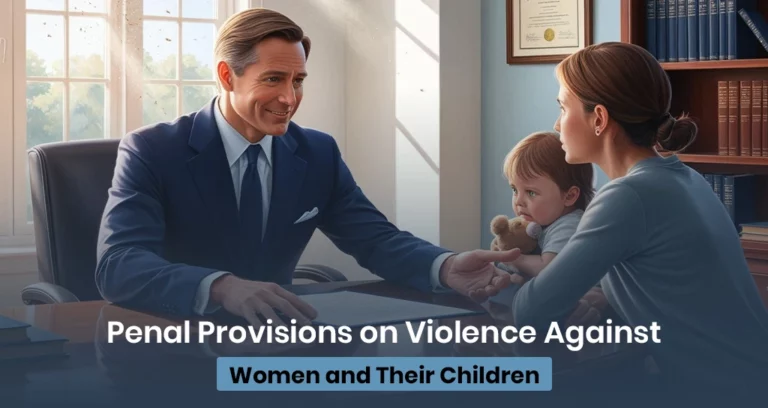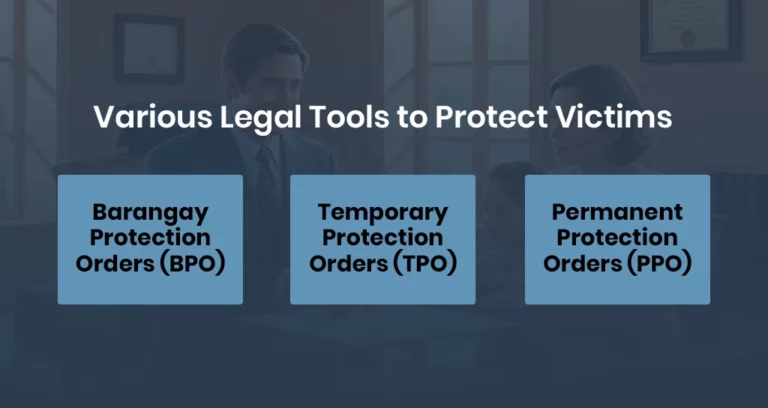Penal Provisions on Violence Against Women and Their Children (VAWC): RA 9262 — Legal Protection or Weaponization?

Introduction
The enactment of Republic Act No. 9262, known as the Anti-Violence Against Women and Their Children Act of 2004, was a major step forward in protecting women and children from abuse in the Philippines. The law was designed to address various forms of violence within intimate relationships, offering protection and legal recourse for victims. While it provides significant safeguards, over time, concerns have arisen about its potential misuse or weaponization in personal disputes. This article explores the dual nature of RA 9262, weighing its protective benefits against the criticisms regarding its possible abuse.
The Intent and Scope of RA 9262
RA 9262 was created to tackle different forms of abuse, including physical, sexual, psychological, and economic violence. It covers cases within intimate relationships, typically between spouses, former partners, or those with a common child. The law aims to recognize and address the power imbalances women face in these settings, ensuring they have the right to live free from violence and coercion.
Key features of the law include the provision of protection orders, custody arrangements, financial support, and penalties for perpetrators. These legal tools are designed to give victims immediate protection and long-term solutions, ensuring their safety and dignity.
Legal Mechanisms and Penalties
RA 9262 offers various legal tools to protect victims. Protection orders, such as Barangay Protection Orders (BPO), Temporary Protection Orders (TPO), and Permanent Protection Orders (PPO), are essential in providing immediate relief by restricting the offender’s contact or presence. These orders can also include provisions for custody arrangements or financial support.
Violations of RA 9262 carry penalties, which vary depending on the nature and severity of the abuse. Offenders may face imprisonment and fines. The law allows courts to impose penalties that consider the emotional, financial, and physical harm inflicted on victims.
The Law's Protective Role
For many victims, RA 9262 has proven to be a critical resource, offering a formal, legal path to safety and justice. The ability to obtain protection orders quickly allows victims to break free from abusive situations without waiting for lengthy legal proceedings. This swift response has empowered numerous women and children to escape cycles of abuse, while also raising awareness about domestic violence within the public, law enforcement, and judicial systems.
Concerns About Misuse and Weaponization
Despite its protective intent, there have been claims that RA 9262 can be misused, particularly in personal conflicts like divorce or custody disputes. Critics argue that the law’s broad definitions and ease of obtaining temporary protection orders may lead to instances where it is used to settle personal scores or to pressure an ex-partner.
Some individuals claim that complaints are filed without solid evidence, purely to harass or retaliate against the accused. While these instances are a matter of concern, evidence of widespread misuse remains largely anecdotal, with no comprehensive data to confirm these claims.
Gender Dynamics and Legal Disparities
A common point of debate surrounding RA 9262 is its gendered approach, as the law primarily protects women and children from abuse. While this focus addresses the historical and widespread violence women face, some argue that it creates an imbalance, leaving men with limited legal recourse in similar situations.
The law’s gender-specific protections have sparked discussions about fairness, with some suggesting that a separate legal framework might be needed for men facing domestic violence. Others maintain that the law is justified given the unique vulnerabilities of women, especially in patriarchal societies.
Challenges in Implementation and Enforcement
For RA 9262 to be effective, it requires the collaboration of multiple institutions, including law enforcement, social services, and the courts. However, inconsistencies in how the law is enforced have emerged, especially in rural areas where resources and training may be lacking. The handling of cases can also vary based on local customs or personal relationships, which might influence how protection orders are applied.
In addition, victims in remote areas may struggle to access legal help, and legal representation for respondents may be difficult to secure. These disparities in access to resources can hinder the law’s effectiveness, especially in ensuring equal protection for all victims and fair treatment of all individuals involved.
Cultural and Social Influences
The success of RA 9262 is also shaped by social attitudes toward gender roles, family life, and authority. In some communities, traditional views on marriage and family may discourage victims from coming forward, or make it harder for them to receive support.
Public opinion on the law is mixed. While many support its goal of protecting women and children, others express concerns about what they perceive as imbalanced protections. These cultural attitudes can influence how often the law is used, how seriously allegations are taken, and how comfortable victims are in seeking help.
Legal Interpretation and Judicial Discretion
Judicial discretion plays a significant role in how RA 9262 is applied. Courts must evaluate the evidence presented, including whether the alleged abuse meets the legal definitions of violence under the law. This flexibility allows for tailored rulings but also introduces the possibility of varying outcomes in similar cases.
The evolving case law surrounding RA 9262 reflects its complexity, particularly in cases involving psychological or economic abuse, which may be harder to define or quantify. As judicial interpretations continue to develop, the law’s application is likely to become clearer and more consistent over time.

Conclusion
RA 9262 represents a critical effort to protect women and children from violence within intimate relationships, reflecting a commitment to human rights and gender equality. While it provides important legal mechanisms for victims, concerns about misuse and fairness cannot be overlooked. As society continues to evolve, so too must our understanding of how the law can best serve its intended purpose—protecting the vulnerable while ensuring fairness for all parties involved.
The ongoing dialogue around RA 9262 underscores the importance of balancing protection with due process, fairness with justice, and advocacy with accountability.
Disclaimer: The content on this website is offered as general information only and is not intended to be legal advice or a solicitation for legal services. The information is not being supplied as part of an attorney-client relationship between the Lawyers of Ricasio Law and anyone viewing it. Viewers should not rely on the information on this website for making legal decisions, but should instead get legal assistance from a skilled attorney. You should not act exclusively on the basis of the material on this website and are strongly recommended to seek the legal advice of a lawyer.
If you are interested in the legal representation, counseling, and other legal services that we offer, please contact us using the information provided on this website. You can also discover more about our real estate transaction services here.
Contact Us
+63 (906) 590 0259
Unit 202, Cristina Condominium, Legaspi Street cor. V.A. Rufino Street, Legaspi Village, Makati City
OFFICE HOURS
MON-FRI 9:00 AM – 12:00 PM | 1:00 PM – 5:00 PM (GMT +8)
SAT 10:00 AM – 2:00 PM (GMT +8) by appointment